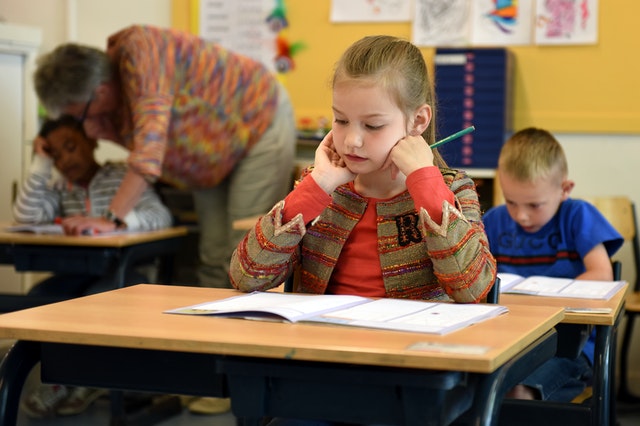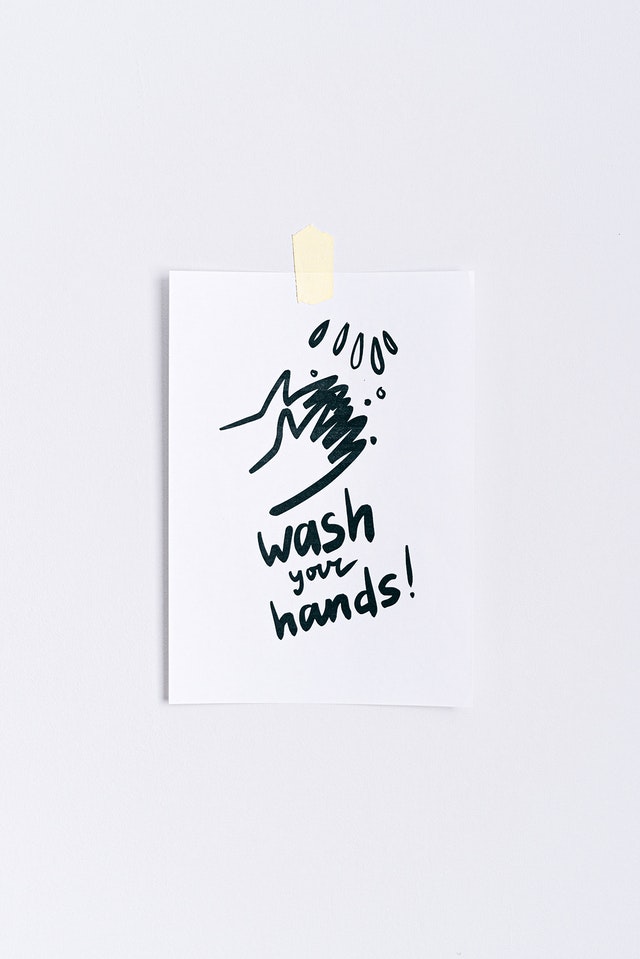We have all been there. As a parent, we ask our child to do something, and when we check back a little later to see if the task is completed, they said they forgot. Or they forgot to bring home what they needed to complete homework (or forgot what homework assignments they have). Or they cannot remember where they placed an item they need immediately. All kids (well, and us adults too!) forget things from time to time. That is normal. Yet, for our children with ADHD, it’s more complicated. What is the connection between ADHD and forgetfulness and how can you help your ADHD child combat it?
Lack of Working Memory and Executive Function

In today’s world, we have so many distractions. So do our kids. I’m sure your child is like mine and is constantly checking every ping from his phone and can be overwhelmed by the number of things that must be done for school and home. While distractions may be one reason that our children and teens with ADHD struggle with forgetfulness, it most likely has more to do with lacking working memory and executive function.
So what are these?
- The Merriam-Webster dictionary defines working memory as “memory that involves storing, focusing attention on, and manipulating information for a relatively short period of time (such as a few seconds).”
- The dictionary also defines executive function as “the group of complex mental processes and cognitive abilities (such as working memory, impulse inhibition, and reasoning) that control the skills (such as organizing tasks, remembering details, managing time, and solving problems) required for goal-directed behavior.”
Why do people with ADHD have trouble with working memory and executive function? Simply put, they have a delay in brain development that allows them to fully form these skills and functions. Many times, it is an inherited trait.
Executive function skills allow for planning and self-regulating. When our children lack these skills and this function, it can affect their ability to remember tasks and other things.
Helping your ADHD child combat forgetfulness

If your ADHD child is still developing their executive function and working memory, how can you help them reduce their forgetfulness? Try some of these 15 ways to help them.
1. Provide clear and brief instructions
Keeping your instructions short and sweet can help your child remember them better. I know I am guilty of giving too long of instructions and explanations to our son J, and it doesn’t serve him well. By the time I’m done, he has already forgotten what he was supposed to do! Since I’ve started being super short with my directions, he has gotten so much better at completing the task on time.
2. Make sure your child is looking at you when you ask them to do something
When your child is focusing on something else (especially a special interest!), they are not really listening to you. Therefore, it’s best to ask them to stop what they are doing and look at you (or in your direction if they have difficulty making eye contact) to ensure they are listening to you.
3. Request they repeat back the instructions
Make sure they have heard the instructions fully by asking them to repeat them back to you. That also can help you clarify any misunderstanding, and you’ll know that your child has heard them.
4. Teach them to use to do lists and how to write reminders for themselves

This is a big one! For some reason, our son J resists using lists and writing reminders. However, I’ve notice that he is doing it more, which is great 😊 Writing to do lists, referring to checklists and using Post-It notes or other ways of leaving themselves reminder notes are a wonderful life skill for our kids to learn.
I was diagnosed as “borderline hyper” when I was a child. (I interpret this as a milder form of ADHD. How did my doctor explain it to my mom? He told her that it wasn’t bad enough for medication, but that I would drive her crazy. True enough!) Forgetfulness is something I’ve struggled with as a person with ADHD all my life. Lists, notes and other types of reminders have been key to improving my ability to remember things. I even send myself emails and leave voice mail reminders! Our kids and teens may prefer to leave reminders for themselves on voice memos on their phones. Encourage them to use whatever works for them!
5. Tie something to a symbol that needs to be remembered
You’ve heard of someone tying a loose string around their wrist as a reminder to do (or not to do) something. That is a trick that our kids can use too to remember something. It doesn’t have to be a string around their wrist. They can use anything that serves as a symbol that remind them of what they need to remember.
6. Come up with a “chain story”
A chain story is a story that you make up that includes all the elements of something that you need to remember. The crazier and more unusual the stories are, the more effective they can be. This may be a fun way for your child to remember information!
7. Ensure your child is getting enough sleep
I know that when I have a poor sleep, I forget things so much more. That is true for our kids. ADHD and poor sleep tend to go hand-in-hand. If your child is not getting enough sleep, try adjusting their bedtime routine. Ensure they are turning off screens early enough, so the blue light doesn’t keep them up, and that they have a soothing routine that helps them unwind. If those changes do not help, talk to your child’s doctor about improving their sleep.
8. Look for ways to reduce stress
Stress can affect your child’s ability to remember things. Look for ways to reduce their stress, whether it’s encouraging them to exercise, spend time on a focused interest, listening to music or practicing relaxation techniques. Decreasing stress will have so many benefits for your child with ADHD, and combatting forgetfulness is just one of them.
9. Use technology

Apps on our phones, tablets and computers can help us remember things. There are many apps for to do lists and checklists that your child can use. They can leave themselves reminders using voice memos. They can take photos of homework assignments and instructions in their classroom (if their teachers approve). Daily calendars can help too.
10. Automate tasks when possible
Whenever possible, automating tasks can help your child combat their forgetfulness. For example, they can keep their backpack for school packed and only take out what they need. Of course, they then need to remember to put the items back in the backpack when they are done with them. Also, as parents, we can keep duplicates on hand of certain items they need. For example, I have a school supply drawer in my desk that keeps items they need for school. Inevitably, my son and his brother lose pencils, calculators, earbuds and other needed supplies.
11. Help them practice self-talk
Using self-talk can help – even if it’s a reminder to write something down. Practicing self-talk about what your child needs to remember can help. For example, if you’ve asked your child to do two chores, maybe it is your child saying to themselves, “After dinner, I need to take out the trash and get the mail from the mailbox. I will write that down on the white board in the kitchen, so I don’t forget.”
12. Set up a launch pad
We have a “launch pad” of sorts in our entryway in our house. It has a coat rack, hooks for backpacks and a shoe shelf. In the morning, our son J knows where to find his school backpack, jacket or coat and shoes to get ready to go to school. This reduces time significantly when getting ready for school, and he isn’t searching throughout the house for the items he needs for the day.
13. Use visual reminders

Our kids with autism and ADHD tend to learn better visually. Visual reminders can be a big help for those with ADHD who struggle with forgetfulness. This may be labeling shelves or drawers with the items that should be stored. Maybe it’s a posted checklist in your child’s bedroom for what needs to be done in the morning. It can include notes on a white board in a prominent place in the house (like the kitchen) or a bulletin board that holds helpful information. You and your child can figure out what visual reminders would be most helpful for them.
14. Develop simple systems
Simple systems can be helpful for ADHD children who deal with forgetfulness. For example, your child may have a box with supplies in it for daily homework. You also can make sure to set up bookmarks on your teen’s computer’s browser to ensure they can quickly access the pages and online systems they need for school.
15. Teach them working memory exercises
Memory exercises are a great way to learn how to remember things. For instance, if they need to remember of list of places, they can use a word or phrase in which each letter represents the first letter of each place. Check out these memory exercises to try with your child or teen.
So does your child with autism and ADHD struggle with forgetfulness? Do you have any tips to add? Leave a comment and share what has worked with your child with others!







